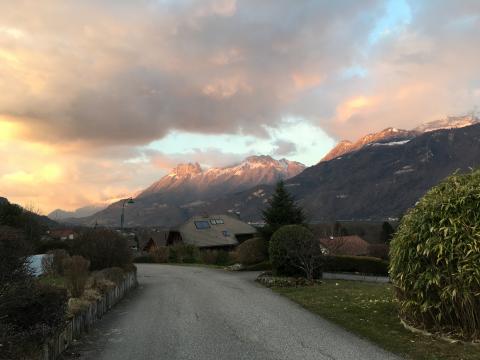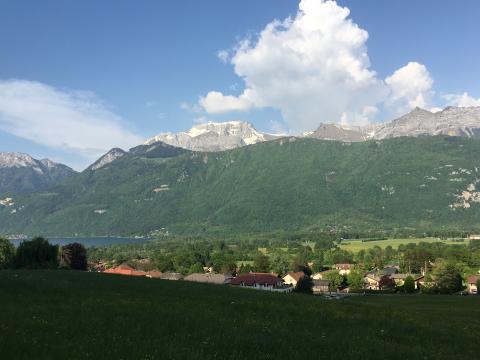An ABT member writes during a time of transition—
This year has seen us taking the final steps to launch out and begin our involvement in Old Testament Bible translation in Africa.
We recently returned from a few months of language study in France. Looking back, we can see that God really paved the way for us. We were especially privileged to have the opportunity to stay with a French couple in a small country village. Their two grown children lived next door with their young children. Also the couple’s aged parents lived on the same property. So that meant regular interaction with four generations. We had separate living quarters, but ate many meals together and interacted throughout the day—all in French! Our hosts were so patient with us as we struggled to express ourselves, and they would often help us to understand words and concepts. We also took the bus to town every day for classes at a language institute.
However, as helpful as classroom instruction can be, it is only one piece of the language learning process. We also got important practice in daily life situations ranging from simple to complex, such as buying groceries, chatting with the neighbors, or discussing theology with our host family over dinner. We also had opportunities to share our faith with our classmates who come from many different countries.
Culture is an inextricably connected piece of language learning. It's not just about memorizing words and grammar and language structure, but about knowing in what situations those words may be used and to whom they should be addressed. For example, in French there is a formal way to speak that would be appropriate in addressing your employer or the mayor of your town, but would sound very stiff and out of place when talking to close friends. It's also helpful to have people who will tell you when you transgress a cultural norm. Once we were preparing a salad for supper and were making it the way we always do in the States—tearing the lettuce with our hands. When our host observed what we were doing, he informed us that it is considered very rude to do that in France. The proper way is to cut the lettuce with scissors!
The alpine scenery in the French countryside was breathtaking! We marveled daily at the beauty of God's creation surrounding us there. Some of our ancestors came from a part of Switzerland that is just over 100 miles northeast of that part of France. The question often came to our minds: "Now how could anyone possibly leave such a incredible place?" Even as we gazed on the alpine beauty, we already knew the answer. No, it's not that they wanted to leave. But after decades of relentless persecution they were deported by the Swiss Reformed authorities because of their commitment to baptize only believing individuals and their refusal to baptize infants. Seeing the beautiful scenery around us reminded us of one aspect of the high price they were willing to pay for their commitment to follow Jesus and stay true to their Biblical convictions. Contrast that with the rich young ruler who owned much but was unwilling to let go of it (Matthew 19:16- 22). Jesus essentially told him, "There's only One who is good (and you are connecting me to Him). But if you actually believe that I here speaking to you am representing Him, then show that you take God seriously—by letting go of your property and following me." Do I say I know that Jesus stepped from heaven into earth and yet fail to take His words seriously enough to act upon them?
With our time in France behind us, our thoughts have turned towards heading to West Africa. Ministering cross-culturally takes preparation as well as investment of time and effort. Pray that God would continue to guide us through the obstacles and give us the patience and perseverance needed to advance the Gospel.


